USDA Continues Urgent Actions to Address Infant Formula Shortage
At the Vermont Foodbank, we know that many of our neighbors are struggling with the nationwide shortage of infant formula. While we do not carry infant formula, we would like to share the news release below with the intent to help parents and care givers access the most up to date information available about this shortage.
If you are a WIC participant, the Vermont WIC office recommends you speak with your pediatrician about safe and appropriate feeding alternatives, or contact the WIC office for additional information. Additionally, they shared that Vermont has implemented all of the flexibilities offered by the USDA for WIC participants and have offered the following resources:
- Updated FNS Infant Formula Safety webpage, highlighting the Status of Infant Formula Recall – Related Waivers for each WIC State agency.
- Blog posted on Keeping Infants Safe in Midst of Formula Shortages.
- American Academy of Pediatrics posted tips for parents and caregivers who are struggling to find baby formula during the shortage, which may be helpful to parents and caregivers.
USDA Continues Urgent Actions to Address Infant Formula Shortage
Urges states to adopt flexibilities to support families amid recall
WASHINGTON, May 13, 2022 – As part of the Biden-Harris Administration’s coordinated drive to end the infant formula shortage, the U.S. Department of Agriculture (USDA) is urging states to take advantage of flexibilities the department is offering in the Special Supplemental Nutrition Program for Women, Infants, and Children, commonly known as WIC, to help families get the safe formula they need.
“We’re acutely aware that the ongoing recall has left many parents and caregivers concerned about access to formula and how they will feed their babies,” said Agriculture Secretary Tom Vilsack. “Our team is committed to the health and safety of all Americans and is calling on states to act immediately to offer maximum flexibility, information, and support to WIC participants. Meanwhile, USDA will continue the work we started in February, working not only within our department, but across the federal government, suppliers and partners to end this infant formula crisis as quickly as possible.”
Since the recall was first announced in February, USDA has been working closely with FDA to ensure program participants and stakeholders have the information they need to keep infants safe. USDA’s Food and Nutrition Service (FNS) immediately reached out to states to offer support and within days, announced a suite of flexibilities available, such as allowing states to broadly offer alternate sizes, forms, and brands of formula and allowing stores to accept exchanges of formula purchased with WIC benefits.
USDA is also in communication with Abbott, the manufacturer at the center of the recall, with Secretary Vilsack today calling on the company to redouble their efforts to ensure WIC participants have access to safe formula, especially those who rely on specialty formulas produced by Abbott.
WIC supports the purchase of formula for moms and families of young children. Typically, there are rules about what products families can purchase with WIC benefits and what stores can allow. USDA has been working with states to relax those rules to help deal with the impacts of the shortage.
To date, not all states have adopted all flexibilities. With today’s letter and ongoing technical assistance efforts, President Biden and USDA are strongly urging all states to immediately take advantage of those flexibilities to alleviate burdens across the supply chain and stand ready to assist with their requests.
USDA continues to work closely with WIC agencies as they review and implement these flexibilities, in coordination with their vendors and local offices. USDA also asked WIC agencies to encourage families to exchange their recalled formula, issued reminders about options for returns and exchanges of recalled products, and posted several resources on infant formula safety including guidance for parents and caregivers.
Over the last several months, the federal government has worked round the clock to address the production shortfall brought about by the recall. As a result of ongoing work, more infant formula has been produced in the last four weeks than in the four weeks that preceded the recall, despite one of the largest infant formula production facilities in the country being offline during that time.
USDA touches the lives of all Americans each day in so many positive ways. In the Biden-Harris Administration, USDA is transforming America’s food system with a greater focus on more resilient local and regional food production, ensuring access to healthy and nutritious food in all communities, building new markets and streams of income for farmers and producers using climate smart food and forestry practices, making historic investments in infrastructure and clean energy capabilities in rural America, and committing to equity across the Department by removing systemic barriers and building a workforce more representative of America. To learn more, visit www.usda.gov.
###
USDA is an equal opportunity provider, employer, and lender.
###
Vermont Foodbank is the state’s largest hunger-relief organization, providing nutritious food through a network of more than 300 community partners – food shelves, meal sites, schools, hospitals, and housing sites. Food insecurity has increased dramatically as a result of the pandemic, economic disruptions, and recent flooding. The Vermont Foodbank and its network have been on the front lines, working to ensure that everyone has the food they need to maintain their health. Last year, the Vermont Foodbank provided over 12 million pounds of food to people throughout Vermont. The Vermont Foodbank, a member of Feeding America, is nationally recognized as one of the most effective and efficient nonprofits and food banks in the nation.





